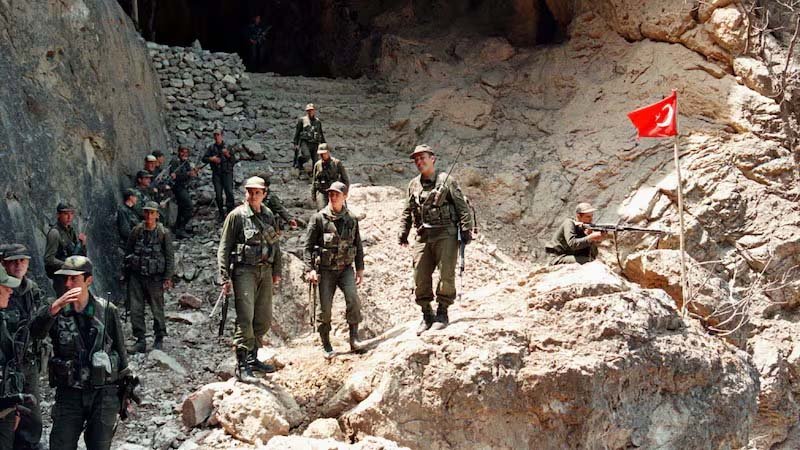
The Turkish military, as well as families at home, are now swept in a muted mourning after a supposedly straightforward operation did not unfold as safely as planned deep in the mountains and difficult terrain of northern Iraq. Twelve Turkish soldiers died in an operation that was supposed to be classified as Turkish soldiers while clearing a cave thought to be used by Kurdish terrorists and militants, and died due to their exposure to methane gas.
The operation took place in the Gara Mountains, a remote and rugged area near the border of Turkey and Iraq – a region known for its difficult terrain and areas to hide for insurgents for many years. The Turkish Ministry of National Defense confirmed the deaths on Tuesday morning and said they died from inhaling toxic gas after clearing the cave.
Based on military sources, the Turkish commandos had begun an anti-terrorism mission against suspected PKK (Kurdistan Workers’ Party) members, which is a group classified as a terrorist organization by Turkey, the EU, and the US. The soldiers had entered the cave at around midnight Sunday to neutralize militants and to disrupt/logistically damage their infrastructure.
What started as a high-risk yet standard operation has become a quiet tragedy.
According to defense officials, communication was lost with the soldiers soon after they entered the cave. When backup teams finally entered with protective gear some hours later, they found all 12 soldiers unresponsive. Medical teams later determined that they died from asphyxiation due to methane gas poisoning. The kill zone was caused by the toxic build-up of methane, an odorless, colorless, and very flammable gas, and likely occurred naturally in the cave, likely exacerbated by explosives or environmental conditions.
Militants in northern Iraq have been using caves and tunnels for decades to create a lethal operational platform for Turkish forces. Natural strongholds such as caves and tunnels may conceal booby traps, hidden rooms, and as this case illustrates, hazardous gas that can accumulate and become deadly over time.
While some experts are speculating if explosives or chemical materials stored inside the cave may have caused the explosion of methane, others suggest the gas was present before the attack in sufficient concentration and was released and catalyzed to release by these other factors.
The Iraqi government has expressed its condolences and said that it will be working closely with Turkey on determining next steps, which include a full investigation into the cause. The U.S. Department of State, EU diplomats, and NATO have sent their sympathies as well while recognizing the complex security operations Turkey is conducting in a volatile region.
The Kurdistan Regional Government in Iraq (KRG) issued a brief statement as well, labelling the incident “tragic and unfortunate,” while reiterating their support for “stability and peace in the region.”
This event has raised broader questions within Turkey about cave operations safety and the availability of sophisticated detection technologies for dangerous gases. The Ministry of Defense indicated it would be reviewing all operational protocols and investing in better atmospheric monitoring systems for future missions.
This military tragedy highlights the human sacrifices of modern warfare. In this case, it is a form of warfare where nature itself is the silent executioner. The deaths of the 12 Turkish soldiers are more than statistics found in a headline; it is a stark reminder of the daily sacrifices made in the name of national security, and a testament to the dangers, both seen and unseen, associated with working at the tip of the spear.
Keep reading questiqa.com

